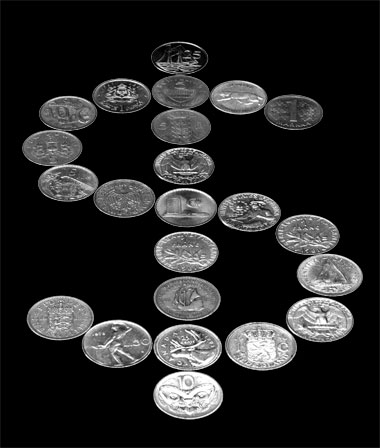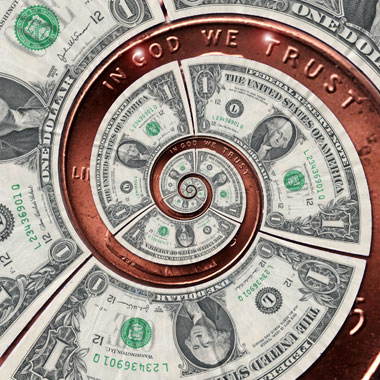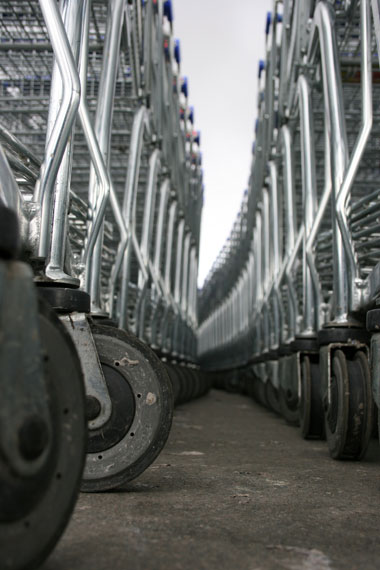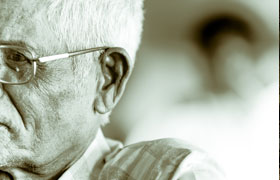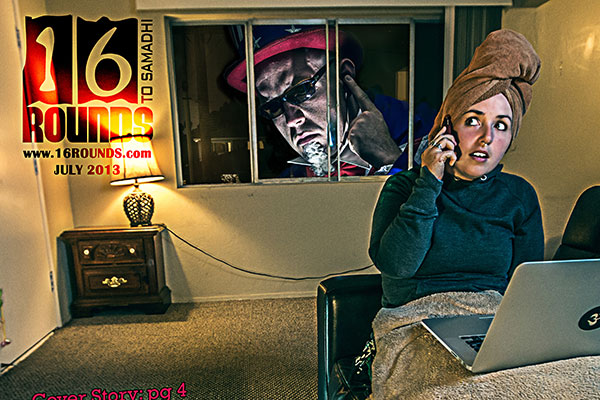Trillions of dollars in economic stimulus dominate the world headlines, and the anxious minds of rich and poor alike. To ease this anxiety, we need much more than just external, temporary attempts at relief.
Rasanath Dasa, our good friend and spiritual guide from The East Village, New York, Temple community, explains from his own unique perspective, as a former member of the Wall Street elite , that we need to look into our hearts and find a place for A Spiritual Stimulus.
August 2nd, 2007. There was excitement in the air. The décor in the ballroom at the Times Square Hilton was exquisite. The crowd dressed in crisp business suits were busily shaking hands and introducing themselves as right on the center of the far wall the projector screen proudly displayed “Bank of America. Higher Standards.” As the fresh batch of MBAs from top business schools walked into the room, the mood was clear. The long-cherished dream of working on The Street (also known as Wall Street) had finally come true for the many aspiring bankers and traders.
As we settled down, my mind flashed back to the yesteryears. As a 9th grader, I was an ardent fan of Charlie Sheen in the 1987 film Wall Street. The momentum that was generated 14 years ago had finally met with success when I was later to become one of 13 associates about to start an exciting career in Investment Banking (oh, those big bonuses!) with the Technology and Media group of Bank of America. The Global Head of Investment Banking, Mr. Brian Brille, opened his address to my class with the statement, “You are all starting here at a very historic time….” Exhilarating!
Flash ahead -past the crowded ballroom and beyond the celebratory speeches. Flash ahead -to a day when the saxophone loudly played the title music of “The Titanic”. The faces of the people walking out of the building with card board boxes told the story. The moment was historic. September 8th, 2008 – I stood outside the Lehman Brothers building at 745 7th Avenue, as the street artist waved dry erase markers at passers-by, urging them to express “words of gratitude” on his painting of the Lehman Brothers CEO, Mr. Richard Fuld. The excitement was over, the bonuses had evaporated, and two Wall Street giants – Merrill Lynch and Lehman Brothers – had met their end. Those remaining had been severely battered.
It all seemed like a dream. Emotions ran high through my head as I walked past Times Square– disappointment, anger and embarrassment. As the newspapers played into the blame game voicing the opinions of the general public about the people working Wall Street, The Street had become something like a criminal’s haven overnight.
I felt it when I introduced myself to my neighbor on the Amtrak train, “Oh! You are one of the guys responsible for this mess,” he said with a wry smile. I had my own blame list too, which I used to defend myself. But something did not reconcile. I mean, I worked with many of these very people. They were good people, inspiring, driven to succeed, hard working and charitable too. What went wrong?
Over the last few months, some deep thinking, as well as some sobering and heart-felt conversations with empowerment gurus have seemed to provide the much needed answer. Consider it a long-term solution to a problem that had always existed through history and now had manifested itself in a different form – the problem of collective greed. Or more simply put, greed itself.
It seems like a regular Bible lesson – something that I had learned about as a 4 year old kid. Only it took me another 24 years to realize the unfathomable power of greed. Most of us seem unwilling to recognize the influence greed can have on us as individuals. When my cousin ardently pointed out that greed motivated my decision to take a job on The Street, I made light out of it. “Well, a little greed doesn’t matter much. After all, there are so many people out there who are doing the same. The world will come to a stop if we start thinking so idealistically!”
Greed, however, is an addiction – it starts out as an innocent desire to be comfortable and live comfortably. But somewhere along the way, instead of us controlling money and position, they begin to control and dictate our lives. As my ethics professor at Cornell University once put it, “Watch out when you tell yourself ‘I deserve it’!” And unfortunately there are hundreds of ways to justify self-indulgence– after all, logical rationalization seems to be the biggest gift that a college education gives to its graduates. But as greed grows stronger by the day, fed by our own justifications and inattention, it no longer remains as a guiding motivation in life. Greed becomes a way of life.
And when things are going good, greed is like a beautiful and lulling tune playing in the background of our lives, a song that seems too trivial to notice, as was my case during my brief stint on The Street. I unconsciously became part of a system that had been built on collective greed (after all the first “commodities” to trade on Wall Street in the early 17th century were human slaves!) A system I inadvertently helped glorify as I hummed along to greed’s sweet melody.
But when the music stops, reality dawns. Of course, it is only after all of the anger and frustration has been released that we are ready to honestly look inside our own selves. True, our individual contribution to this crisis may have been insignificant, but if we are not honestly spending time cleansing our own hearts of greed, we might as well just mentally prepare ourselves for much more of the same. As we vent our frustrations on the Thains, Fulds, and Madoffs during this crisis, it is also important to realize that they were just reflections of the very same greed within our hearts- perhaps only nurtured by more sophisticated and favorable education, power and circumstances than what we may have had. Really, it could have been any of us.
What may be needed in this time of crisis, along with a monetary solution to bail us out of it, is a program to help us monitor, take personal responsibility for, and possibly eliminate greed from our hearts– a Spiritual Stimulus, if I may call it. We all want to see this situation change, but to prevent this situation from reoccurring, we need a deeper change. As Mahatma Gandhi wonderfully said, “Be the change you wish to see in the world!” How we do it, time will tell. But let us use this time to at least resolve to rid our hearts of the pollution of greed. It can be a big step in creating a better world for our children.
